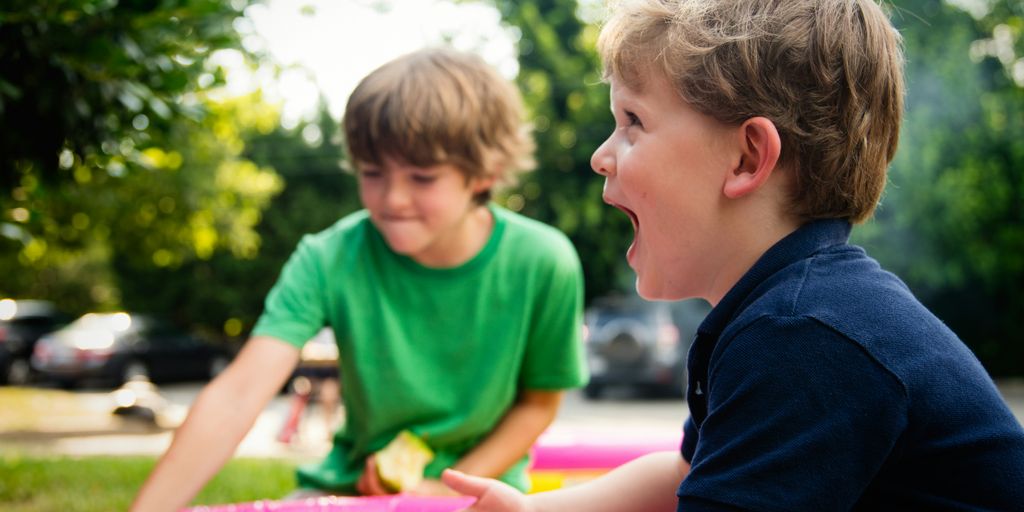
Navigating the complexities of sibling relationships during formative years is no small feat. It requires patience, understanding, and a willingness to see the world through each other’s eyes. Misunderstandings and conflicts are inevitable, but they also offer opportunities for growth, empathy, and stronger connections. As siblings learn to communicate effectively, respect each other’s boundaries, and support one another’s individual journeys, the dynamics of their relationships evolve into a source of comfort, joy, and lifelong companionship.
Key Takeaways
- Sibling relationships allow children to experiment with new social and emotional behaviors, especially during conflicts.
- Building stronger sibling bonds is a dynamic and ongoing process that requires patience, understanding, and effort from all involved.
- Effective communication, respect for boundaries, and mutual support are crucial for evolving sibling dynamics into positive relationships.
- Parents play a significant role in shaping sibling relationships by modeling positive behavior and avoiding favoritism.
- Strong sibling bonds provide emotional support, shared memories, and companionship throughout life, making the effort to nurture these relationships immensely rewarding.
Understanding the Foundations of Sibling Dynamics
The Role of Birth Order
Birth order can significantly influence sibling dynamics. Eldest children often take on leadership roles, while younger siblings may be more rebellious or free-spirited. Understanding these roles can help siblings appreciate each other’s perspectives and strengths.
Personality Differences
At the heart of sibling dynamics lies the interplay of personalities, often as distinct as the colors of a spectrum. Where one sibling may tread carefully, assessing every outcome, another might leap fearlessly into the fray. These differences, while enriching, can also be a source of friction, highlighting the unique challenge siblings face in understanding and accepting one another.
Navigating the complexities of sibling relationships during these formative years is no small feat. It requires patience, understanding, and a willingness to see the world through each other’s eyes.
Impact of Family Environment
The family environment plays a crucial role in shaping sibling relationships. A supportive and nurturing home can foster strong bonds, while a tense or competitive atmosphere may lead to rivalry and conflict. Creating a positive family environment is essential for healthy sibling dynamics.
- Encourage open communication
- Celebrate individual achievements
- Promote shared activities and traditions
Effective Communication Strategies for Siblings

Effective communication is the cornerstone of strong sibling relationships. Teaching siblings to express their thoughts and feelings openly and respectfully can lay the foundation for lifelong bonds. Here are some strategies to enhance communication between siblings:
Active Listening Techniques
Active listening is crucial in any relationship, including that of siblings. Encourage your children to express their feelings and concerns, and actively listen to what they have to say. This creates an environment where they feel heard and understood, which can lead to a stronger bond between siblings.
Expressing Emotions Constructively
Encourage siblings to share their experiences, celebrate each other’s successes, and offer support during challenging times. Positive communication helps build a family culture where every member feels heard and understood.
Setting Boundaries Respectfully
Setting clear expectations and boundaries is essential for maintaining harmony. Teach siblings to respect each other’s personal space and privacy. This not only helps in reducing conflicts but also fosters mutual respect and understanding.
Open and honest communication is crucial in any relationship, including that of siblings. Encourage your children to express their feelings and concerns, and actively listen to what they have to say. This creates an environment where they feel heard and understood, which can lead to a stronger bond between siblings.
Managing Conflict and Rivalry
Sibling rivalry is a natural part of family life, but it doesn’t have to be a source of constant conflict. By understanding the underlying causes and employing effective strategies, parents can help their children build stronger bonds with their siblings. Encouraging individuality, open communication, conflict resolution skills, and patience, consistency, and love, families can create an environment where their children can grow and thrive together.
Fostering Positive Interactions
Shared activities can be a great way to strengthen sibling bonds. Whether it’s playing a game, cooking together, or embarking on a family outing, these moments create lasting memories and foster teamwork. Encourage siblings to find common interests and hobbies they can enjoy together.
Recognizing and celebrating each sibling’s achievements can boost their self-esteem and reduce rivalry. Make it a family tradition to acknowledge milestones, big or small. This practice not only builds confidence but also teaches siblings to appreciate and support each other’s successes.
Family traditions provide a sense of belonging and continuity. Establishing regular family rituals, like weekly game nights or annual trips, can strengthen family bonds and create a supportive environment. These traditions become cherished memories that siblings carry into adulthood.
By actively promoting these principles within the family, parents and guardians can help nurture sibling relationships that are characterized by love, respect, and mutual support, laying the groundwork for positive interactions that can last a lifetime.
The Role of Parents in Shaping Sibling Relationships
Parents play a pivotal role in shaping the relationships between siblings. The way siblings relate to one another can significantly influence their emotional development, sense of identity, and the quality of their familial bonds throughout life. Here are several tips for parents aimed at fostering healthy, supportive sibling relationships:
Modeling Positive Behavior
Parents are role models for their children. When parents speak kindly and give the benefit of the doubt, children are more likely to do the same with their siblings. This sets a foundation for love, respect, and mutual support.
Avoiding Favoritism
Avoiding favoritism is crucial. Treat each child as an individual with unique needs and strengths. This helps prevent feelings of resentment and rivalry.
Supporting Each Child’s Unique Needs
Parents should recognize and support each child’s unique needs. This can be done by:
- Encouraging individual interests and talents
- Providing emotional security and support
- Promoting healthy relationships with friends and family members
By actively promoting these principles within the family, parents can help nurture sibling relationships that are characterized by love, respect, and mutual support, laying the groundwork for positive interactions that can last a lifetime.
Navigating Sibling Relationships in Adulthood
Navigating sibling relationships can be tricky. There is no perfect relationship and the same is true for siblings. However, we can grow in our relationships.
Maintaining Connections Over Distance
Maintaining connections with siblings over distance requires effort and intentionality. Regular check-ins, video calls, and planning visits can help keep the bond strong.
Resolving Long-standing Issues
Resolving long-standing issues is crucial for a healthy relationship. Open communication and setting boundaries can pave the way for healing and understanding.
Building New Traditions Together
Building new traditions together can strengthen sibling bonds. Whether it’s a yearly trip or a monthly call, creating shared experiences fosters closeness.
Sibling relationships may involve complex dynamics such as caretaking, competition, or enmeshment. Establishing boundaries around these roles is essential for a balanced relationship.
The Long-term Benefits of Strong Sibling Bonds
Emotional Support Throughout Life
A strong sibling bond provides emotional support that lasts a lifetime. Siblings who share a close relationship can offer a unique form of understanding and empathy that is hard to find elsewhere. This emotional security can be a buffer against life’s challenges, providing a sense of stability and comfort.
Growing up with siblings offers numerous benefits, including emotional security, mutual support, and opportunities for shared experiences.
Shared Memories and Experiences
Siblings create a treasure trove of shared memories and experiences. These shared moments, whether joyful or challenging, form a unique bond that can be cherished throughout life. The mutual history and understanding foster a deep connection that is both comforting and enriching.
A Lifelong Source of Companionship
A strong sibling relationship is a lifelong source of companionship. As life evolves, siblings can remain a constant presence, offering companionship and support. This enduring connection can significantly boost happiness and reduce feelings of loneliness, making life’s journey more enjoyable and fulfilling.
Conclusion
Navigating sibling dynamics is a lifelong journey that requires patience, understanding, and consistent effort. While conflicts and misunderstandings are inevitable, they also present opportunities for growth, empathy, and deeper connections. By fostering open communication, respecting each other’s boundaries, and supporting one another’s individual paths, siblings can build a foundation of love, respect, and support that endures through time and distance. The rewards of these efforts are immeasurable, offering comfort, joy, and companionship throughout life’s journey. Ultimately, the strength of sibling relationships lies in the commitment to nurture and cherish these unique bonds, making them a source of enduring happiness and mutual growth.
Frequently Asked Questions
How does birth order affect sibling relationships?
Birth order can influence personality traits and behaviors, impacting how siblings interact. For example, firstborns may take on leadership roles, while younger siblings might be more rebellious or seek attention in different ways.
What role do parents play in shaping sibling dynamics?
Parents significantly influence sibling relationships through their behavior, the way they model conflict resolution, and how they address each child’s unique needs. Avoiding favoritism and encouraging positive interactions are crucial.
How can siblings manage conflicts effectively?
Effective conflict management involves active listening, expressing emotions constructively, and finding mutually acceptable solutions. Setting boundaries and understanding common triggers can also help reduce conflicts.
What are some activities that can foster positive sibling interactions?
Shared activities like family games, outdoor adventures, and collaborative projects can strengthen sibling bonds. Celebrating individual achievements and creating family traditions also foster positive interactions.
How can adult siblings maintain their relationship over long distances?
Maintaining connections over distance can be achieved through regular communication via calls, video chats, and visits. Building new traditions and resolving long-standing issues can also help strengthen the bond.
What are the long-term benefits of strong sibling relationships?
Strong sibling relationships provide emotional support, shared memories, and a lifelong source of companionship. These bonds can offer comfort, joy, and a sense of belonging throughout life’s journey.






